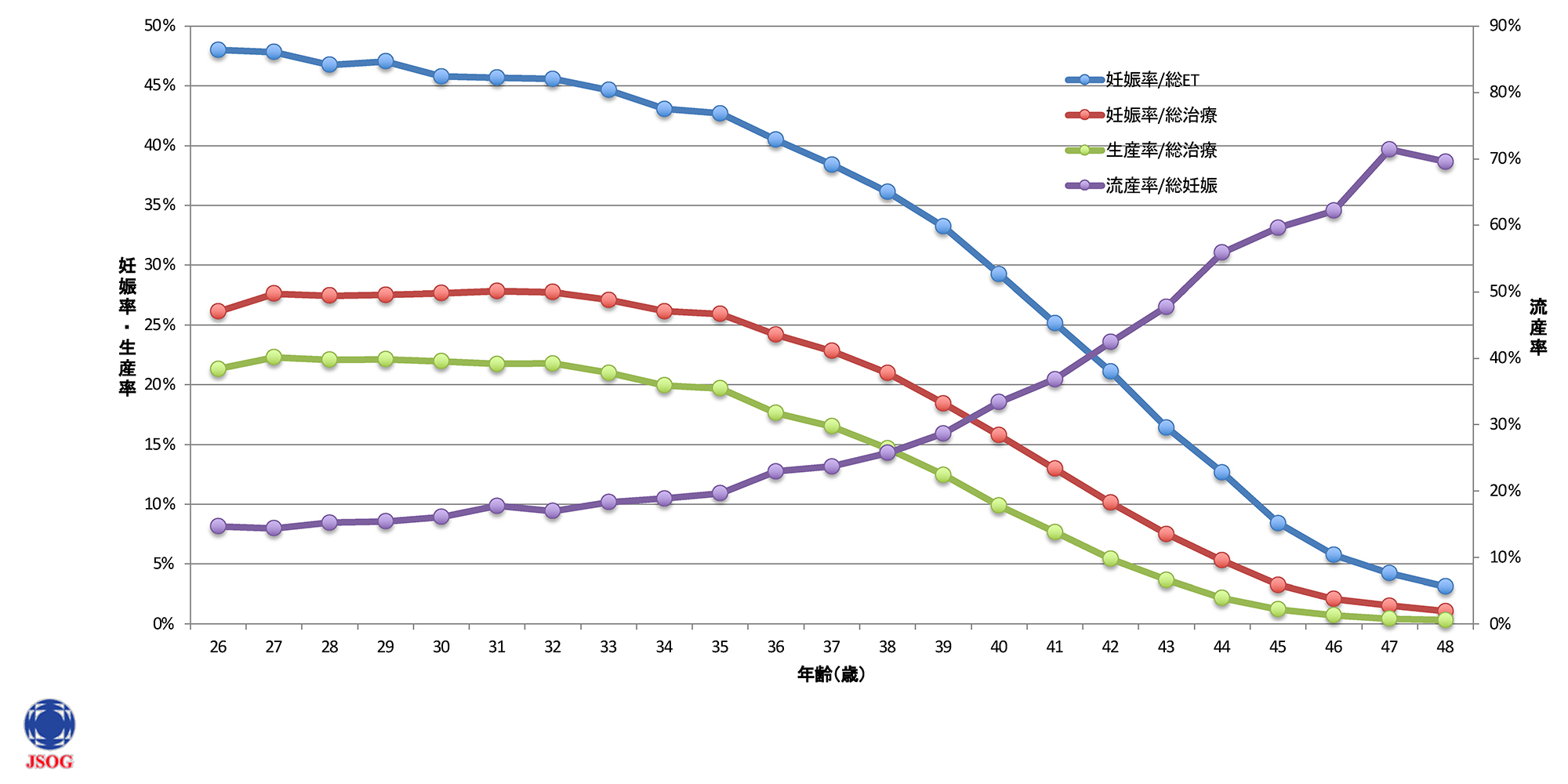
Fertility is the ability to conceive.
In order to get pregnant, not only oocyte and sperm but also sexual function, reproductive organs, and endocrine functions are important.
Fertility concerns both women and men.
A woman's fertility peaks in her 20s, declines gradually in her 30s, and declines sharply after age35.
NHK's "Close-up Gendai" TV special was broadcast in 2012.
At this time, many audience members were shocked as they first learned about "aging of oocytes."
Oocytes age just like people do, and after around the age of 35 or so, this makes pregnancy harder to achieve.
As you can see from the graph below, from the late 30s onwards, the pregnancy rate decreases and the miscarriage rate increases with age.
The cause is that the oocytes produced deteriorate in quality with age.

Source: Japanese Society of Reproductive Medicine website(
2020_ARTdata.pdf
)
Because of this, if you do not plan to become pregnant or give birth between your 20s and early 30s but you still want a child in the future, oocyte cryopreservation may be for you.
No matter how young a woman looks, an oocyte is still as old as it is.
As the oocyte ages and the number of chromosomal abnormalities increases, fertilization may not be successful, the fertilized oocyte may not divide, and even if it implants, miscarriage risks may increase.
By freezing oocytes, it is possible to secure the highest quality oocytes at the moment, and the birth rate at the age at the time of freezing can be expected.
We have a system in place for long-term storage of frozen oocytes.